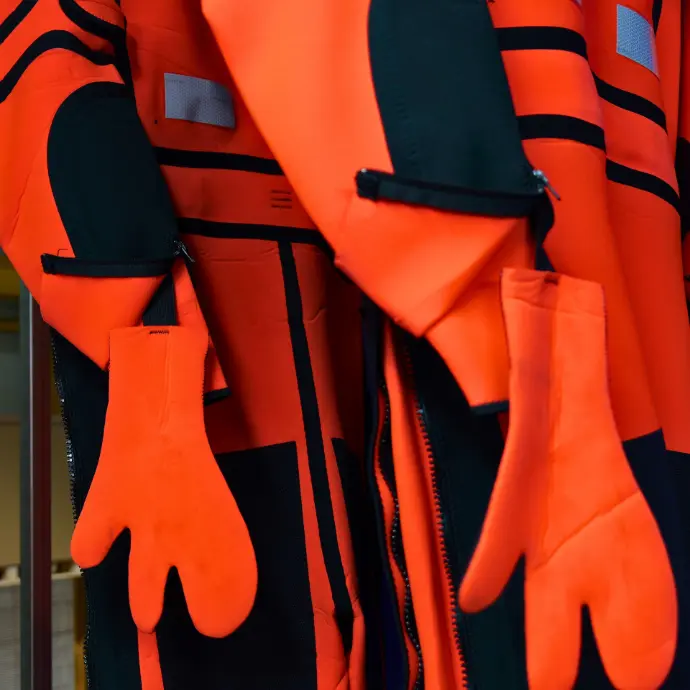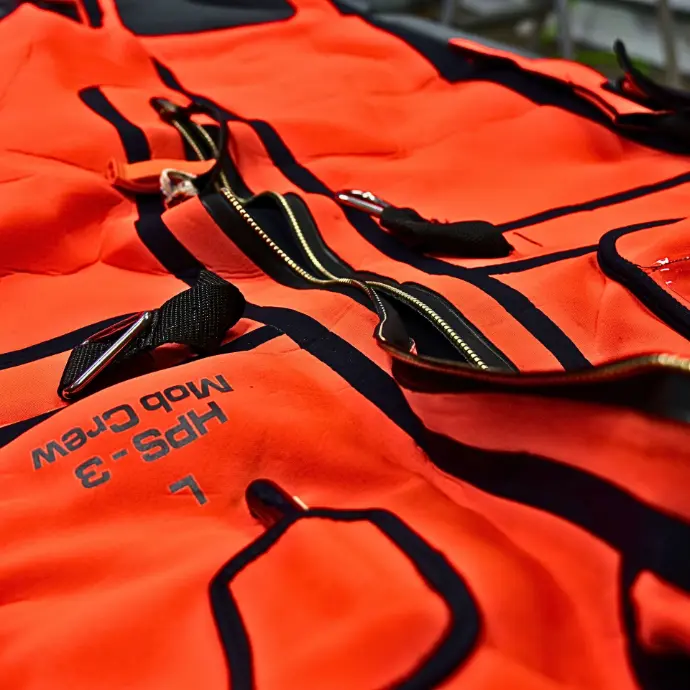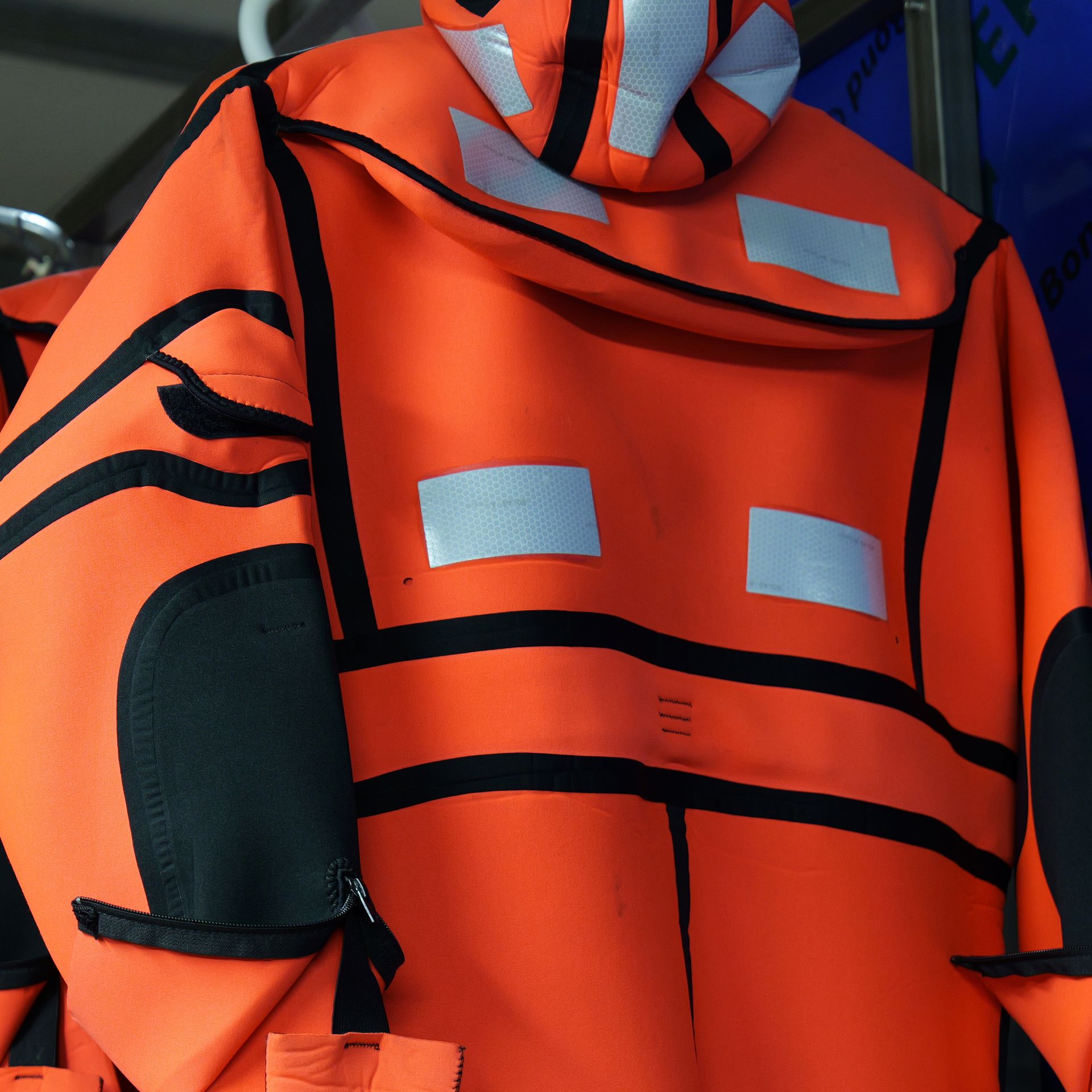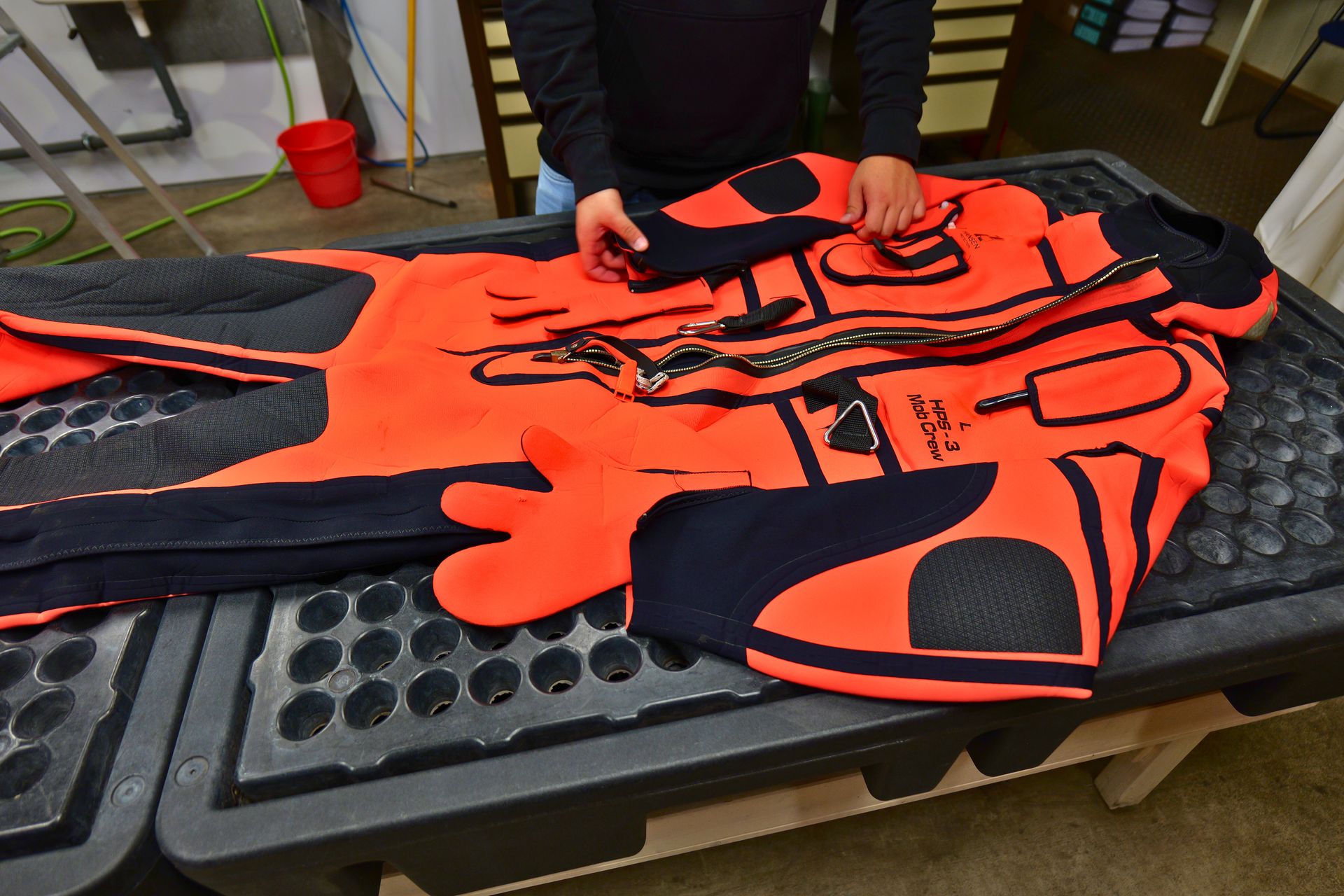SOLAS
The International Convention for the Safety of Life at Sea (SOLAS) is one of the most important maritime safety treaties. In force since 1974, it sets global safety standards for ships, crews, and passengers. SOLAS covers a wide range of aspects, from navigation rules to mandatory safety equipment such as survival suits, ensuring maximum protection and rescue at sea.

ETSO
ETSO (European Technical Standard Order) refers to technical standards for civil aviation products in Europe, issued by the European Union Aviation Safety Agency (EASA). An ETSO authorization is granted when a product meets these strict technical requirements, ensuring safety, interoperability, and reliability. For survival equipment used in aviation, ETSO certification confirms compliance with European safety standards and streamlines the approval process.

ISO
ISO (International Organization for Standardization) develops and publishes international standards to ensure that products and services are safe, reliable, and of high quality.
For survival suits and lifejackets, ISO standards specify the construction, performance, and testing requirements that must be met to guarantee safety and effectiveness.

FAQs
No, survival suits do not have a fixed expiration date.
SOLAS-certified suits must be inspected every three years. SOLAS suits older than 10 years must be inspected annually.
We recommend that all suits, regardless of age, be inspected once a year to ensure safety and functionality.
No, it is not mandatory. However, we strongly recommend choosing a certified suit.
SOLAS represents the international standard for saving lives at sea and a life on land is just as valuable.
Yes, in most cases survival suits can be repaired depending on the type and extent of the damage.
Typical repairs include defective wrist seals, small punctures, or loose reflective patches.
- Store in a dry, cool place, ideally at temperatures between 10 °C and 25 °C (50 °F – 77 °F).
- Avoid direct sunlight and extreme heat sources, as they can damage the material.
- Storage areas should be well-ventilated and free from excess humidity to prevent mold.
- Whenever possible, hang the suit to avoid folds or creases that may weaken the material.
- If hanging is not possible, use dedicated storage bags or containers to protect the suit from dust, dirt, and damage.
- Keep away from chemicals, oils, solvents, and other aggressive substances.
- If the suit is wet after use, it must be thoroughly cleaned and completely dried before storage.






